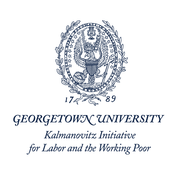America is mired in a crisis of unprecedented scope and depth. The disruption of the pandemic is draining for all of us, but for many, its consequences are dire.
For the millions of people who’ve had little or no work for pay for as long as six months, life is immeasurably stressed. Prospects for jobs seem nil. Their savings, if they were lucky to have them, were depleted long ago. In this “other America,” to borrow the title of Michael Harrington’s 1962 expose of poverty as our national shame, they confront intolerable burdens.
The recovery and prosperity of the stock market is generating headlines. But the market reflects the prospects of the already wealthy; it is by no means the story of the real economy. Drilling down into new data offers a deeper look into the livelihoods of 2.5 million domestic workers. They are the home care workers assisting our elders and other family members with health conditions or disabilities, nannies who tend our kids, and the cleaners for our apartments and homes.
During the pandemic, our colleagues at the National Domestic Workers Alliance (NDWA) used extensive surveys to portray the condition of domestic workers. The results are stark and confounding. In one of the richest nations in the world, poverty within one of America’s largest workforces is rampant and deeply damaging.
Domestic workers are facing unrelenting struggles. Their desperation is driven by unemployment rates of over 70% — far higher than what Americans faced during the Great Depression, when unemployment breached 25%. And most of those who have lost jobs during the pandemic have no idea whether their employers will ever hire them back. Most domestic workers surveyed by NDWA are their households main bread winners. More than half were unable to pay the current month’s rent. Eight in ten now worry about eviction. And for many, hunger is at their door. One third cannot afford to buy food for the week, and more than half were uncertain if they would have enough to feed themselves and their families.
The poor job quality and treatment of domestic workers is a pre-existing condition, making these workers especially vulnerable during this crisis. And their situation is getting worse as COVID surges and the economy struggles. The plight of domestic workers isn’t an accident or a calamity of irresistible influences. Their predicament arises from the choices we made as a society in the form of government policies and our own household budgets. We must not allow challenging times to numb us. We should no longer accept a system of laws and regulations or a labor market that robs these workers of stability while also exposing them to illness, harassment, and wage theft.
The Domestic Workers Bill of Rights Act, if adopted at the federal level, would extend pay and leave rights to this workforce, along with health and safety protections. Similar bills are already in place in nine states. And a major segment of the domestic workforce would benefit from better-funded Medicaid reimbursement rates for long-term care services, mandating overdue wage increases for home care workers. We should also do our part to recognize that domestic work is critical to the economy’s functioning. This begins by seeing domestic workers — and seeing what they do as real work. Home care workers, nannies, and housecleaners have long kept our homes and families safe; now we should do the same for them.
Angelina Del Rio Drake and Mark G. Popovich
Angelina Del Rio Drake is Chief Operating Officer at PHI, a Job Quality Fellow at The Aspen Institute, and a former home care worker. Mark G. Popovich is Director of the Good Companies/Good Jobs Initiative within the Aspen Institute Economic Opportunities Program. He worked in childcare and lower-wage food service, maintenance, and other jobs early in his career.
A longer version of this piece appeared originally in The Hill as “The Peril of Domestic Workers” by Angelina Del Rio Drake (PHI) and Mark G. Popovich (Aspen Institute Good Companies/Good Jobs Initiative. This version is authored by Popovich for use in Working-Class Perspectives.



Then, make certain these people have a chance to work a second job like Uber or an Amazon warehouse. Also, lots of unofficial caregivers are also more healthy seniors that worked off the books to ad income to their social security. I have friends that do this.
LikeLike
Pingback: Links for 10/22/20 - Catholic Mass Search
Pingback: Links for 10/22/20 – christian-99.com
Pingback: The “Other America”: The Poverty and Peril of Domestic Workers | Working-Class Perspectives | Ned Hamson's Second Line View of the News